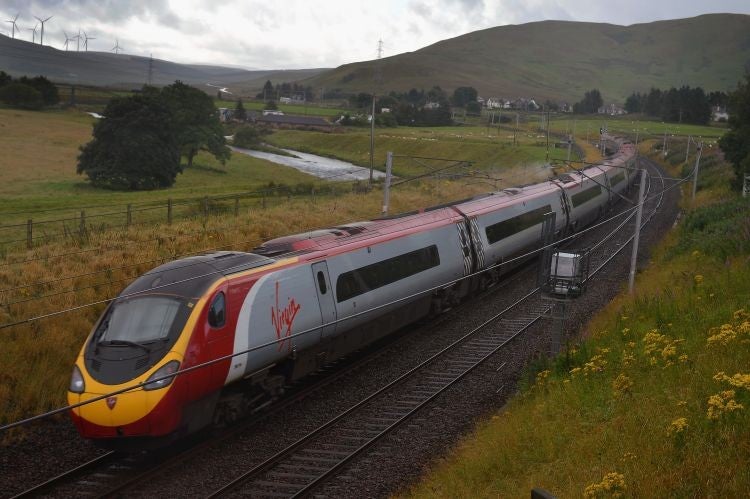Virgin Trains profits gather speed as West Coast contract is extended
The operator has pledged to invest more than £20 million to modernise stations

The West Coast Main Line rail franchise fiasco ran into fresh controversy when the Government extended Virgin Trains’ temporary contract with a likely profit margin three times greater than under its previous deal.
The Department for Transport (DfT) botched the tender process for the London-Manchester-Glasgow line in 2012 when it awarded the contract to FirstGroup. Sir Richard Branson’s company, which had been running the West Coast line since 1997, threatened to sue and the Government, admitting fault, scrapped the award. Instead, it gave the route back to Virgin Trains to run on a temporary basis. The failed tender cost the taxpayer £50m in legal and consultancy bills.
Under the new temporary contract, which runs for a further two years plus a probable one-year extension, Virgin Trains has agreed to pay the taxpayer almost £60m more each year than it had been paying before. Its previous contract, however, represented a profit margin of about 1 per cent, while the replacement is likely to run to about 3 per cent, analysts said.
Virgin Trains stressed that the old contract, which came into place after the 2012 debacle, did not include any of the big investment that the new deal will bring in. Virgin Trains, rather than the taxpayer, will also now be taking on more of the commercial risk, it pointed out.
The DfT said the new contract meant the company would have to provide thousands of extra seats, better wi-fi and station upgrades. It will also set up a new direct route between Shrewsbury and Blackpool and London. Service improvements will add up to £35m.
Critics said the contract showed what poor value for money the taxpayer had been receiving before. Mick Cash, acting general secretary of the RMT union, said: “The collapse of the tendering process on the West Coast has allowed Virgin to bully themselves into a monopoly provider position, hoovering up repeated extensions while the public sector option is ignored.”
City investors pointed out that the lucrative nature of the new deal was demonstrated by today’s 2 per cent rise in the share price of Stagecoach, Virgin Trains’ 49 per cent shareholder. Despite that, Virgin Trains’ executive co-chairman, Patrick McCall, said the deal stemmed from “some tough negotiations with the DfT which put the problems of 2012 firmly behind us”.
Last year, Sir Richard said he had shared nearly £500m in dividends from Virgin Trains with Stagecoach, while Stagecoach’s accounts for 2013 showed its share of the operating profits was £12.8m, against £21.5m the previous year. Sir Richard’s side of Virgin Trains will, by the end of the extended West Coast Main Line contract, probably exceed £300m.
Patrick McLoughlin, the Transport Secretary, said: “This deal will provide thousands more seats and better journeys for the tens of thousands of passengers who use these services every day.”
However, his shadow, Mary Creagh, said: “This is the latest chapter in the botched West Coast franchise process, which has left passengers and taxpayers paying the price for government incompetence.”
She said the fiasco had cost taxpayers at least £50m directly and hundreds of millions of pounds more in delays to investment on the line and to other franchise competitions, which were put on pause during a review of the process.
Subscribe to Independent Premium to bookmark this article
Want to bookmark your favourite articles and stories to read or reference later? Start your Independent Premium subscription today.

Join our commenting forum
Join thought-provoking conversations, follow other Independent readers and see their replies